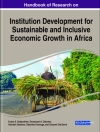
Macroeconomic models, essential for decision making and federal budget planning, may not appropriately consider the wide breadth of climate-related impacts that potentially have large macroeconomic significance. Challenges integrating climate factors into macroeconomic analyses can stem from the complexity of macroeconomics, climate science, policy instruments, and their interactions. Although economists have made progress in developing tools to understand climate-related impacts on the macroeconomy, much of the climate and macroeconomic research has historically been conducted in disciplinary silos that can limit a holistic understanding of climate-related impacts on the macroeconomy.The National Academies of Sciences, Engineering, and Medicine, under the auspices of the Roundtable on Macroeconomics and Climate-Related Risks and Opportunities, convened a workshop on June 14-15, 2023, to consider current macroeconomic models and suggest opportunities that may improve the incorporation of climate-related factors into macroeconomic modeling. Through panels of invited speakers and an interactive breakoutdiscussion, the workshop explored an array of macroeconomic models and potential pathways to integrate some of the physical and transition effects of climate change. This publication summarizes the presentations and discussion of the workshop.











